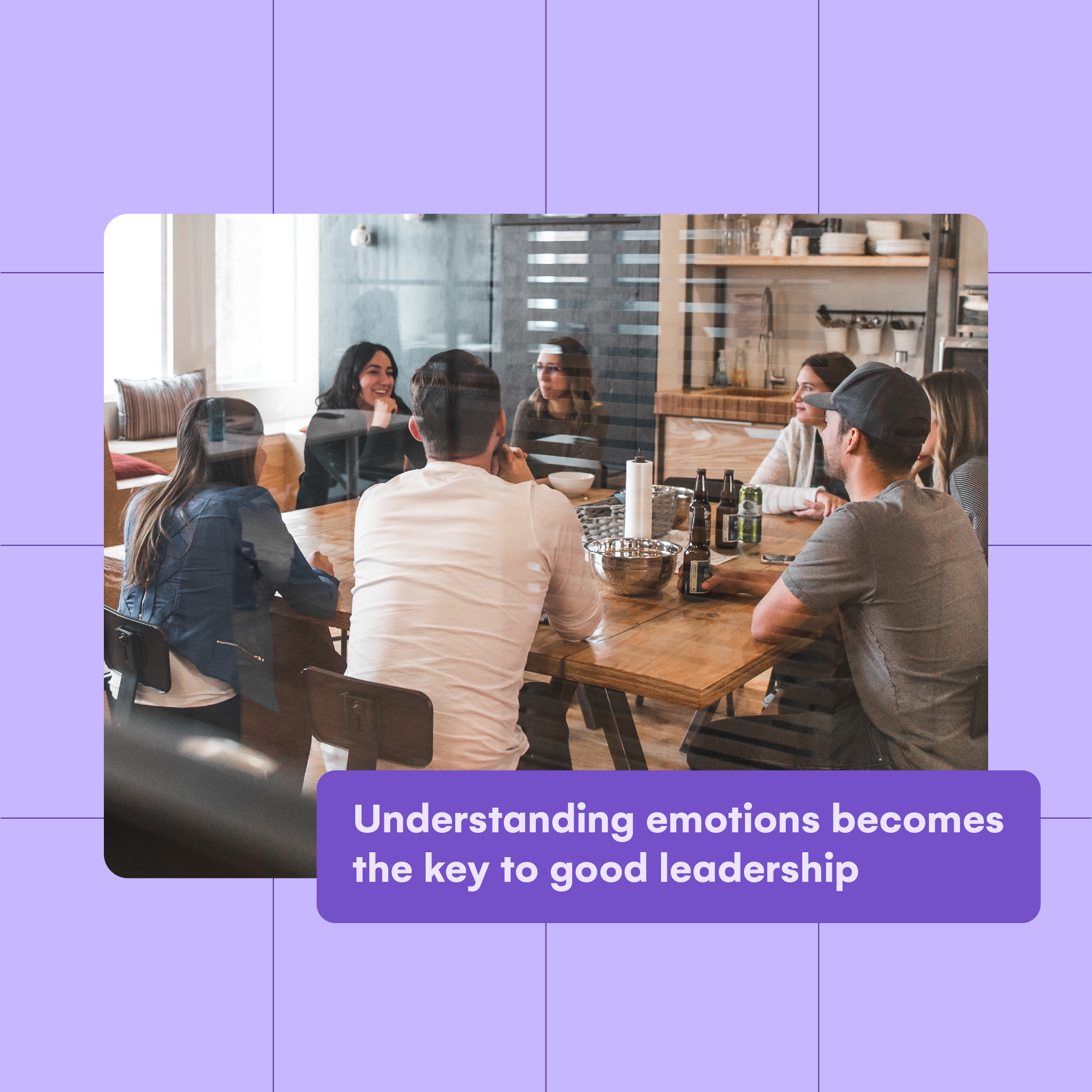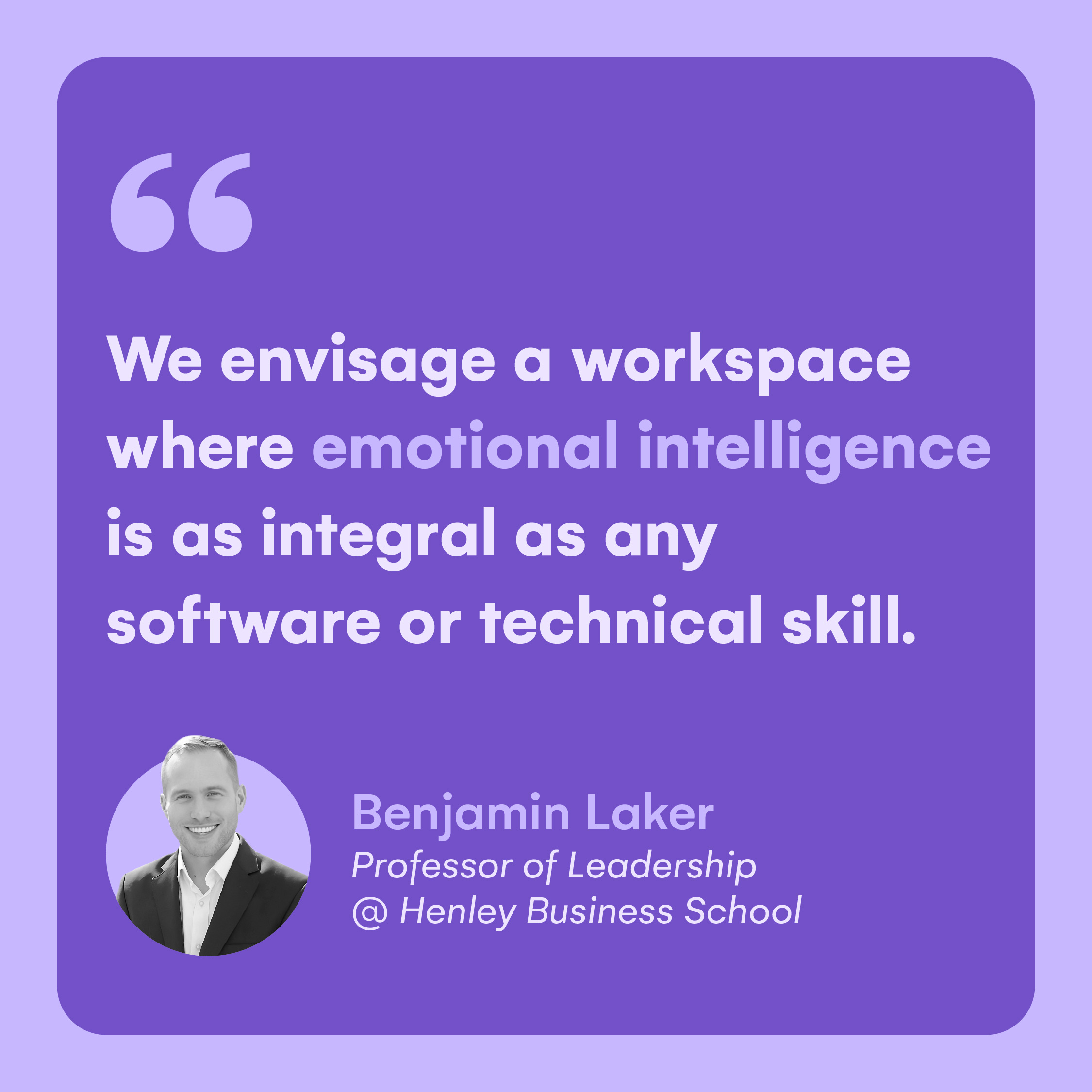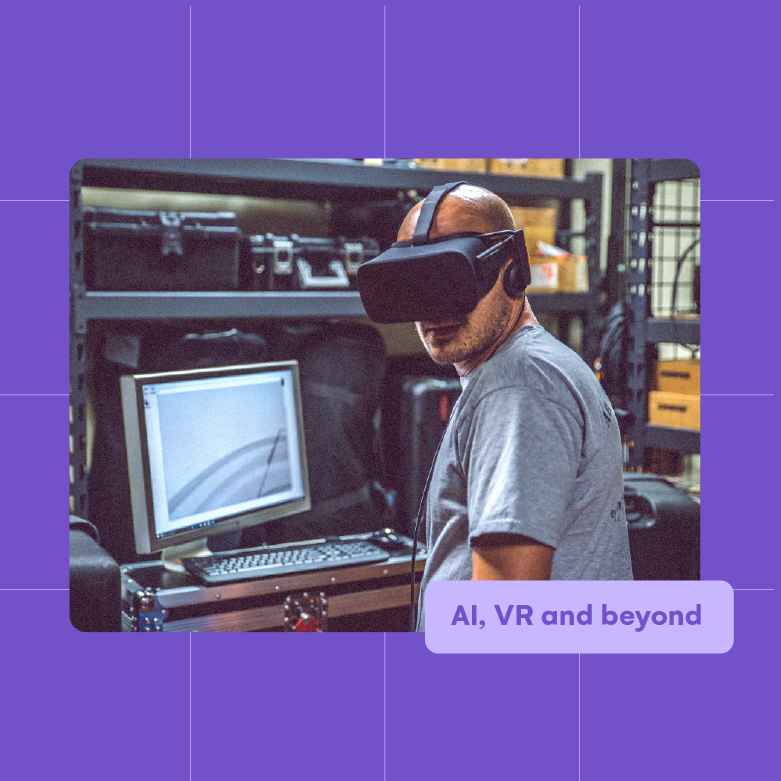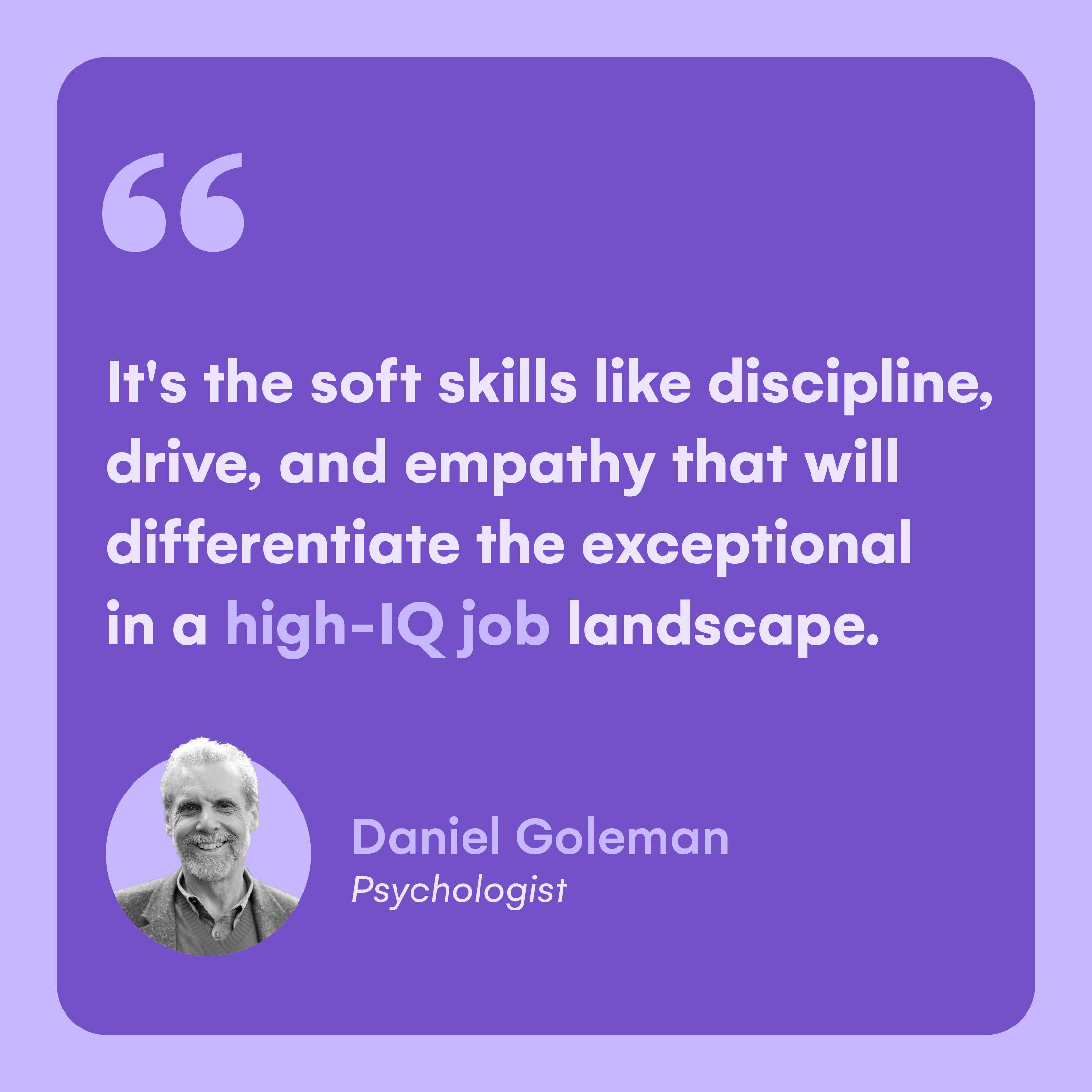As we bid farewell to 2023, a year that saw Artificial Intelligence (AI) become a staple in our work environments, we stand on the brink of a new era: 2024 promises to be a transformative year where emotional learning emerges as a key player on the corporate stage. This evolution in Learning and Development (L&D) signals a shift from purely technical skills to the nuanced art of emotional intelligence—resulting in a more holistic approach to professional growth.
The fusion of technology and emotional perceptiveness is set to redefine our professional landscapes, in any sector. Contrary to traditional views that place machines and emotions at odds, the integration of innovative tools like AI, Virtual Reality (VR), and advanced data analysis is set to amplify our capacity for emotional learning. This synergy will not only enhance our ability to navigate the complexities of human emotions but will also empower us to forge deeper connections in the digital realm.
Picture a workplace where understanding emotions becomes the key to good leadership—a place where a manager, let’s call her Sarah, revolutionises her team’s dynamic by mastering emotional learning. Under her guidance, productivity soars not just through metrics but through the strengthened bonds of understanding and mutual respect, and the cultivation of a work environment that prioritises empathy and responsiveness.
Thanks to Sarah’s approach, the team doesn’t just meet targets; they exceed them by building a cohesive, emotionally intelligent community. Team members feel valued, their voices heard, creating a feedback loop of trust and innovation. Sarah’s unique strategy replaces outdated management models with a responsive, empathetic ethos, leading to a workplace where the emotional well-being of each person is constitutive to the collective success, heralding a shift towards a more nuanced and human-centric approach to management.
This shift towards an emotionally intelligent culture is foundational to organisational success, according to a research published by Ruhina Karani and Sharmishta Desai. This shift is not just theoretical but is now being operationalised through innovative digital methodologies. According to the study, the assessment of Emotional Quotient (EQ) is evolving, moving away from self-reported measures that are fraught with subjectivity, towards a new horizon where technology plays a pivotal role. So, by harnessing audio-visual signals and the analytical power of deep learning, researchers are crafting a more objective means of evaluating the key components of EI. These components, which include self-awareness, self-regulation, self-motivation, and social relationships, are essential for navigating the complex interpersonal dynamics of the workplace.
Building on the exponential growth of emotional learning in workplaces, which highlights empathy and responsiveness, the integration of advanced technologies like AI and VR in 2024 is set to further revolutionise this landscape. Google champions this development with programs like ‘Search Inside Yourself‘, which blends mindfulness with EI, reflecting the innovative fusion of technology and personal growth initiatives in the corporate world.
Virtual Reality creates immersive, realistic scenarios for employees to practice and refine their emotional responses, aligning with the vision of a workspace where EQ is as crucial as any software skill. An example is Meta Quest (previously Oculus), which offers an advanced dimension for emotional competency training—providing users with complex, interactive contexts, from public speaking to navigating diverse cultural interactions, which foster empathy and adaptability in a risk-free environment.
Generative AI softwares can power human’s natural emotional skills with machine learning and data analysis. Consider, for instance, how technologies such as Affectiva‘s emotion recognition software are transforming the ways we understand and improve communication and customer service by analysing facial expressions for emotional responses. Meanwhile, Starbucks showcases a sophisticated application of machine learning and big data analytics from their rewards program and mobile app to anticipate customer preferences and offer personalised service. This proactive approach not only speeds up the ordering process but also guides their marketing initiatives and strategic decisions, demonstrating how AI can significantly elevate customer engagement and operational efficiency in the service industry.
Organisations must adeptly manage the personalisation capabilities of technology without overwhelming employees. This demands strategic investment in developmental training, robust feedback mechanisms, and a leadership team devoted to nurturing a supportive learning environment.
For teams the challenge lies in harnessing emotional learning tools effectively to identify and nurture growth areas without disrupting established work processes. The aim is to improve team dynamics and customer engagement without introducing undue stress or conflict.
Individuals are faced with the task of utilising these technologies to foster personal and professional development. They must navigate these tools to gain emotional insights while avoiding the pitfalls of information overload, which can lead to increased pressure rather than enhanced performance and well-being.
That said, employees who engage with these technological tools have the opportunity to achieve greater self-awareness and emotional regulation, and hence an increased personal well-being. This self-improvement leads to greater job satisfaction, lower stress levels, and ultimately, a more fulfilling career path. For the digital professional, these trends imply a more nuanced role where technical skills are complemented by emotional savvy. In a landscape where change is the only constant, the digital professional who can harness emotional insights through technology will find themselves at a competitive advantage, ready to lead and innovate.
In sum, the workplace of 2024 is set to be distinctly human-centric, with emotional learning playing a central role. For digital professionals, adapting to these upcoming trends is not just about keeping pace with change—it’s about fostering a work environment that values emotional intelligence alongside technical acumen. By embracing the emerging trends in emotional learning, employees can significantly enrich their personal and professional lives, driving growth and innovation for themselves and their organisations. The future of work is emotionally intelligent, and the journey towards it begins now.






